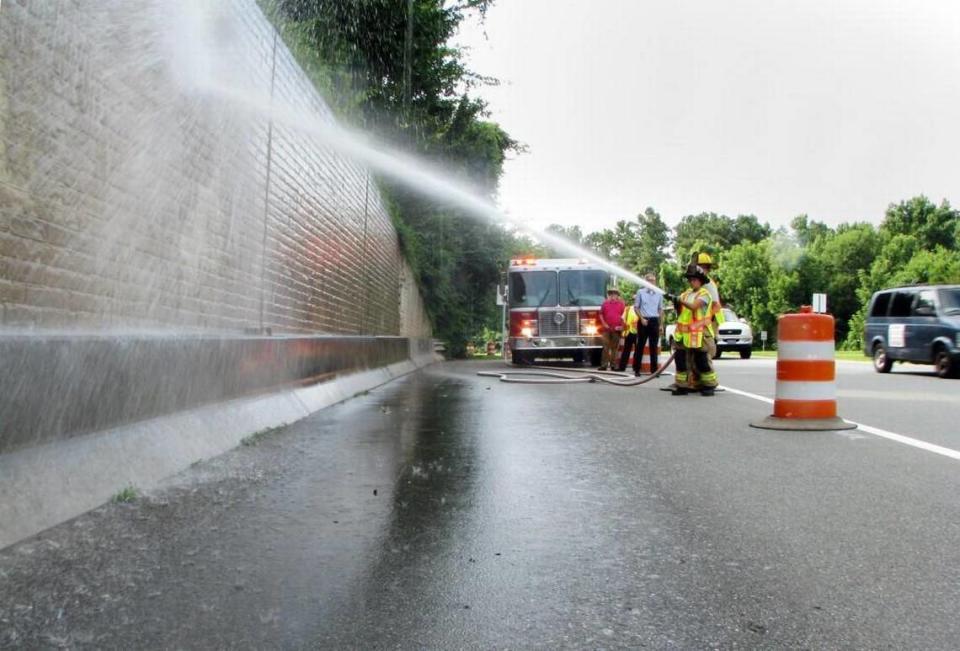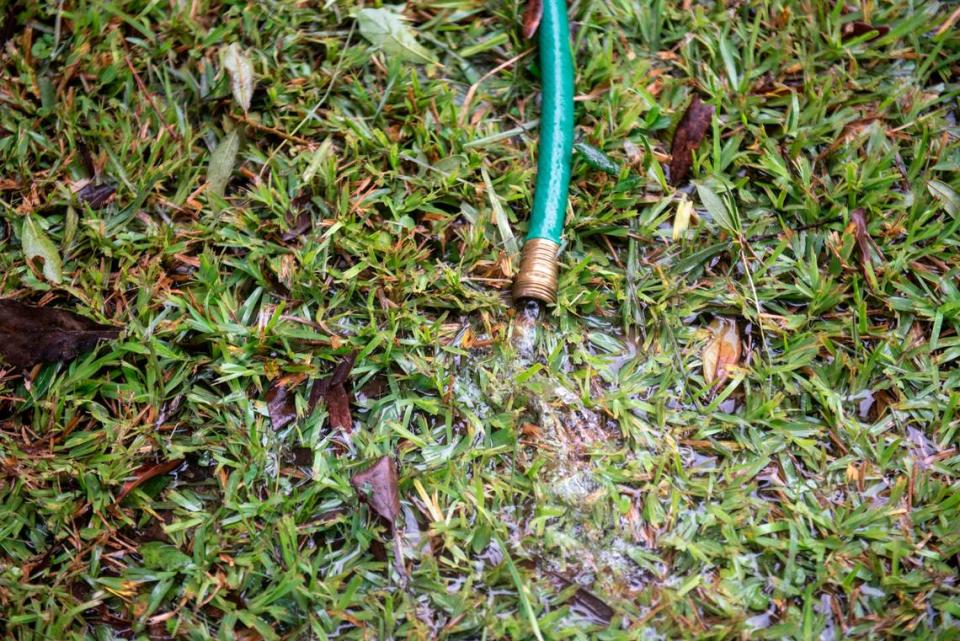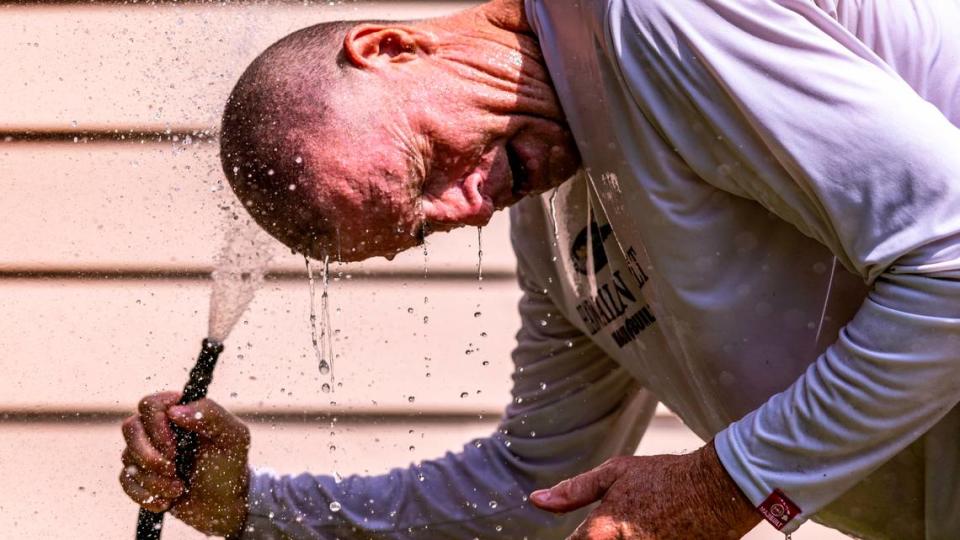Should you water your concrete foundation in hot NC weather? Probably. Here’s why
Raleigh is expecting triple-digit, record-breaking temperatures this week.
Many of our hot weather to-do lists include cranking up the AC and stocking up on our favorite popsicles, but we heard about another strange-sounding task we might want to be doing in the extreme heat: watering our concrete.
It seems that extreme temperatures can cause our home’s foundations to crack, and dowsing concrete with garden hoses can help prevent this.
But does this really help?
Here’s what we learned.

How does the heat impact a house’s foundation?
• Soil shrinkage: Excessively hot weather can shrink your soil. This can lead to structural issues for your house, according to the home repair company Carolina Foundation Solutions.
This is a fairly common problem for structures built atop clay and other expansive soils. And red clay is especially common in the Piedmont region and central portion of our state, which can impact everyone in the Triangle.
After a substantial rain, NC soil can increase in volume by 10%. The inverse effect can happen when it’s too dry and the soil can shrink significantly, according to home repair company Tar Heel Basement Systems.
• Cracked foundation: Rising temperatures can make the shrunken soil pull away from your foundation, leading to possible cracks.
Widening cracks can significantly weaken the structural integrity of your home, causing your foundation to shift, Carolina Foundation Solutions wrote.
• Dangerous sloping: A noticeable sloping may appear, showing that your home is no longer on level ground.

Water your concrete (and other tips) to avoid foundation issues
Here’s what you can do to care for your home’s foundation in extreme heat:
• Water your concrete: But more importantly, water your soil.
“It may seem odd to water a concrete foundation, but watering the soil around your home for 15 to 20 minutes on a hot day can keep the soil wet, thus preventing it from drying out,” Carolina Foundation Solutions wrote.
It’s best to do this in early morning or late evenings in the scorching summer heat, making sure the water really absorbs instead of quickly evaporating.
▪ But don’t over-water! Too much water can give you foundational issues too, as clay expands when it’s received a lot of water, so be sure to have the hose running around your property for just the right amount of time.
“You need to take into account which sides of the home get more sun or shade than others, … the temperature forecast (droughts), etc. All of these factors help determine the optimal watering schedule that would be best for your foundation,” wrote Texas-based company HD Foundations, Inc.
• Remove trees and bushes near the foundation. Roots can cause damage, and the water they need can dry out the soul beneath the surface.
• Correctly position your drain pipes: Make sure you’re positioned to deposit rainfall away from the structure.
If your foundation isn’t properly waterproofed, too much rain or watering can make the water pool, giving you wet walls and mold growth.
Source: carolinafoundationsolutions.com/blog

Signs your foundation needs fixing
Some signs are subtle and hard to detect, but others are obvious if you know what you’re looking for.
Tar Heel Basement Systems and Carolina Foundation Solutions say common signs can include:
Cracks within the foundation or interior drywall
Cracks in exterior brickwork or moldings
Cracked driveway or patio concrete
Leaning or tilting chimney
Doors or windows that are starting to stick
Tiles in the kitchen or bathroom that are buckling
Cracks in the sheetrock
Uneven or sloping floors
Gaps around windows
Broken or cracked pipes
Related story from the Fort Worth Star-Telegram.
Your guide to Hopscotch Music Festival in Raleigh: Lineup, day parties, tickets
Cicadas are at their peak — so you may see more copperheads. Snake expert explains

